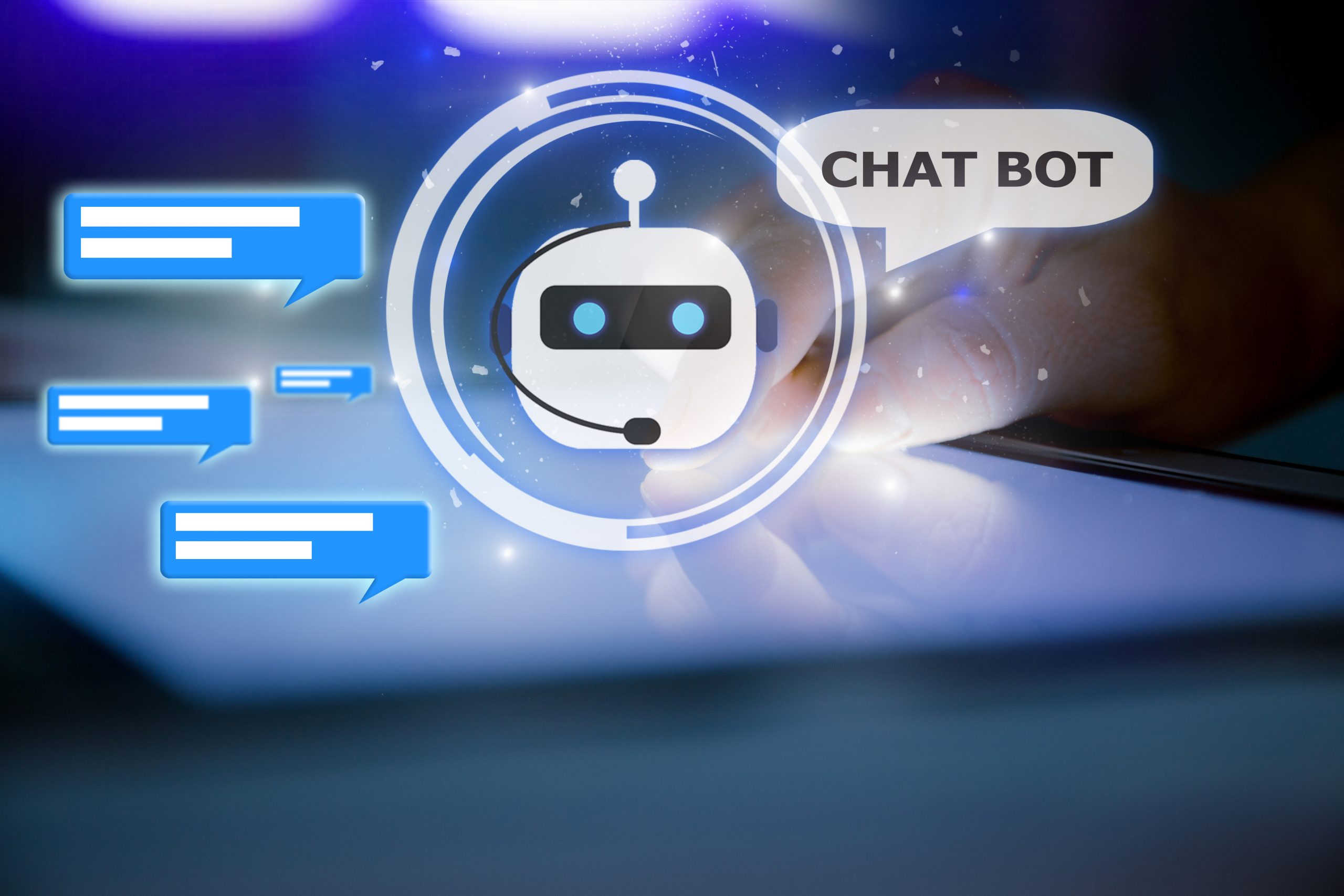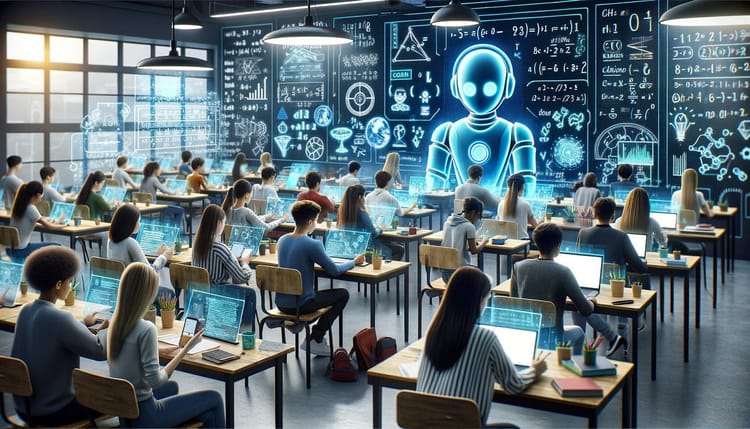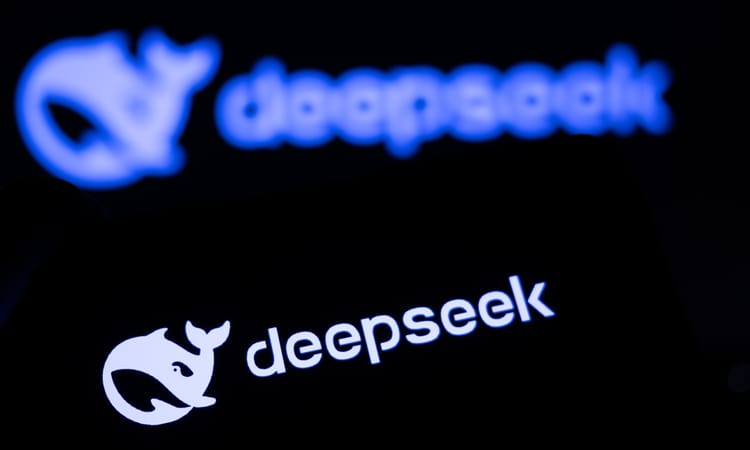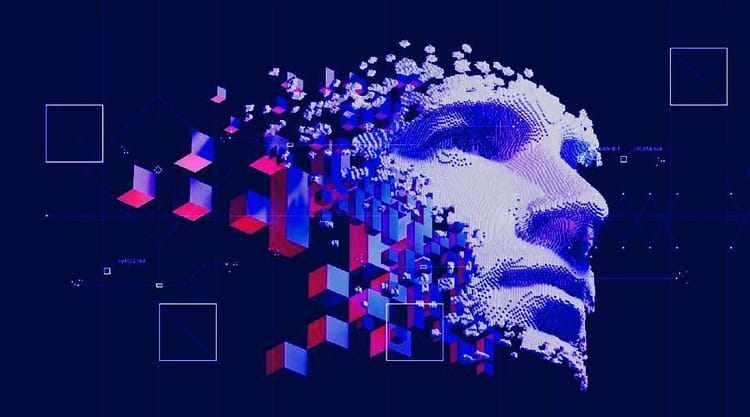AI Roundup: What is Artificial Intelligence?

You've read the press releases, news reports, and marketing pieces on Artificial Intelligence or AI. And there's a big chance that you have encountered ChatGPT online, which is perhaps the biggest project to come out of the AI industry in recent years. But what exactly is AI, its common use cases, and why should we pay attention?
Artificial Intelligence, or AI, is fast becoming a household name, redefining how we work, enjoy, and receive basic services, from healthcare to financial services. According to a Pew Research survey, more than half of Americans know the technology and its common uses. Outside of the US, China leads in adopting this emerging technology. Fortune reports that 58% of companies in China now deploy AI, with another 30% considering its integration. Multiple news reports also say that ChatGPT is one of the fastest-growing AI tools in recent years. ChatGPT has over 180 million users as of March 2024, underlying its popularity among individual users and companies.
While AI and ChatGPT are popular, Pew Research says that only three in ten US adults can correctly identify all six use cases for the technology. The same trend could apply in developing countries, underscoring the need to develop a more comprehensive public understanding of the topic.
Artificial Intelligence is a technology that enables machines or computers to simulate human intelligence and perform problem-solving capabilities. Combined with other technologies, like robotics, geolocation, and sensors, AI can complete tasks that would otherwise require human knowledge and intervention. Since the development of computers in the 1940s, it has been shown that these devices can be programmed to complete complex tasks. For example, early projects on developing computers' capacity and 'intelligence' have shown that they can carry out complex tasks. There were projects where computers were developed to discover, test, and evaluate mathematical theorems, and at least one computer project excelled at playing chess.
Deep Blue was a chess-playing system that ran on the IBM supercomputer. It was the first computer system to win a chess game and a match against a reigning world chess champion. Although it initially lost the match against Gary Kasparov in 1996, its upgraded version won its rematch and was considered a milestone in the history of Artificial Intelligence.
Still, despite advances in computer memory capacity and processing speed, AI's capabilities remain limited, and it can't still match full human flexibility over wide domains or different types of tasks thatg require everyday knowledge. However, a few programs have achieved the performance levels of humans and professionals when completing highly specific tasks on diverse applications and industries, including computer search engines, handwriting recognition, and chatbots.
4 types of AI that you should know

Experts say that we can categorize AI into one of the following four types:
- Reactive AI. This type of program uses algorithms to optimize their outputs based on a set of inputs. A popular example is a chess-playing AI, like the Deep Blue, that beat a world chess champion. Deep Blue uses a system that blends a searching ability of over 200 million chess positions per second with a summary of information on all moves to select the best opening moves. This type of AI is fairly static, unable to learn or adapt to new situations. As such, experts say that they often provide the same output when using identical inputs.
- Limited memory AI. Unlike reactive AI, limited memory AI boasts an improvement in its intelligence as it derives knowledge from previously acquired information, past events, or historical data. It doesn't just process information based on inputs; it can learn from previous experiences or information. To offer this service, the limited memory AI analyzes actions, data inputs, and scenarios to develop provisional knowledge. This technology is in our autonomous vehicles today, which can 'read the road,' adapt to specific conditions, and even learn from their previous experiences.
- Theory-of-the-mind AI. Our AI industry has also developed theory-of-mind AI that is fully adaptive and can learn and retain past experiences.
- Self-aware AI. As the term suggests, it refers to an AI that is aware of its existence. This is still in the realm of science fiction and the object of many novels, stories, and films.
How do we use AI today?
Artificial intelligence is used extensively in different industries across various applications and in varying complexities. These programs and tools aren't just helpful to companies; they are also helpful to individuals for everyday transactions and activities. For example, you probably know the recommendation algorithms that suggest 'what you might like'.
There's also a big chance you have encountered chatbots on many websites. Instead of a human agent, you probably speak with a chatbot that can interact and provide answers and assistance based on its stored information and resources. Siri and Alexa are popular examples of smart speakers for AI technology.
Also, AI technology is popularly used in mainstream media, particularly in predicting weather and financial forecasting. Businesses rely on AI to streamline their production process, reduce cognitive labor, like editing and tax accounting, and operate autonomous vehicles.
Of course, for most of us in the general population, our primary introduction to AI is through ChatGPT and its rivals, including Claude. ChatGPT is a natural language processing chatbot that uses generative AI technology to sustain human-like conversations. It can answer questions on almost all topics imaginable. It can assist you in certain tasks, including composing emails, drafting essays, or preparing for your next important job interview. OpenAI released the ChatGPT tool late in 2022, and it grew rapidly in popularity and widespread adoption, with millions of new users added monthly.
Today, ChatGPT is arguably the face of AI and shall remain so in the next few years. In the future, this AI tool shall become helpful along these lines:
Continual learning
The company behind ChatGPT continually improves and refines the platform. OpenAI looks forward to developing ChatGPT to become more context-aware, responsive, and accurate during real-time communications.
Improve user experience
Companies that use AI and ChatGPT have reported increased customer engagement and satisfaction. ChatGPT and AI-powered chatbots are more responsive and offer more personalized assistance.
Future integrations
OpenAI has shared that it plans to work with various communications platforms. This means that you could use ChatGPT or chatbots on video conferencing platforms or your favorite social media platforms.
Enhance training and education
Aside from customer service, ChatGPT and the rest of the AI technology can prove helpful in training and education. In fact, many university students are now using AI to ask questions, draft essays, research, and write dissertations. Soon, AI and ChatGPT may be used in office setups where employees train by chatting and interacting with AI tools.
Artificial Intelligence has plenty of possibilities, and it isn't just a tech trend. AI and ChatGPT are a testament to human ingenuity and our collective desire to improve and transcend our boundaries. We can now use this technology to improve our everyday lives, from communication and entertainment to how we do business. Of course, technology has its limits, and there are ethical concerns. Ultimately, what matters most is how we leverage AI to improve the quality of our lives without reducing our humanity.




